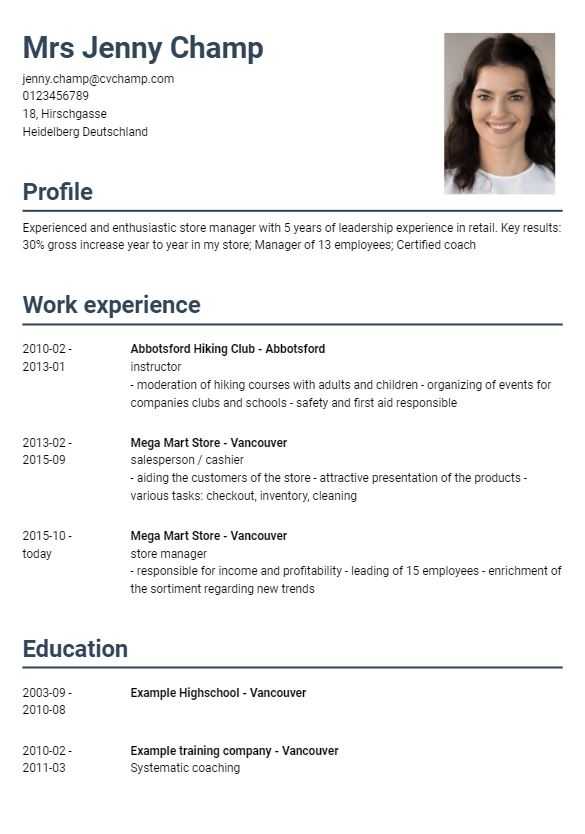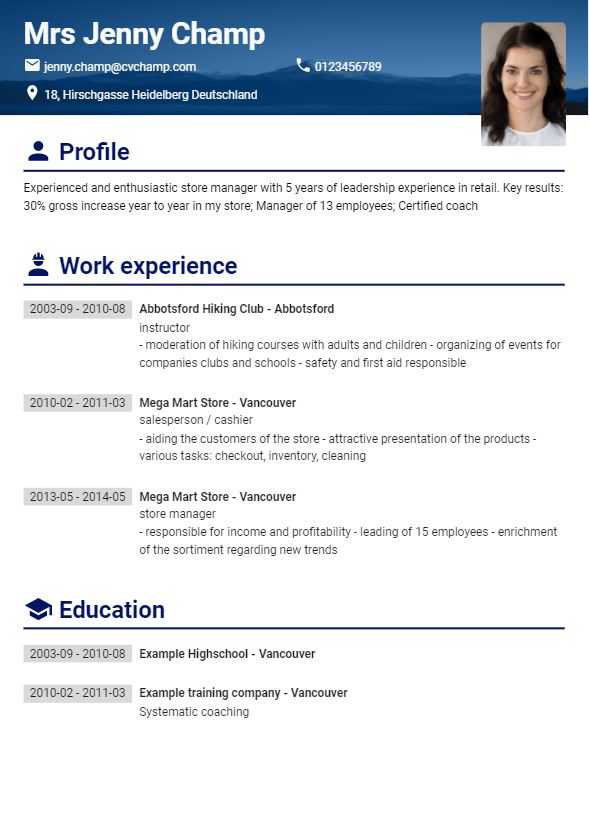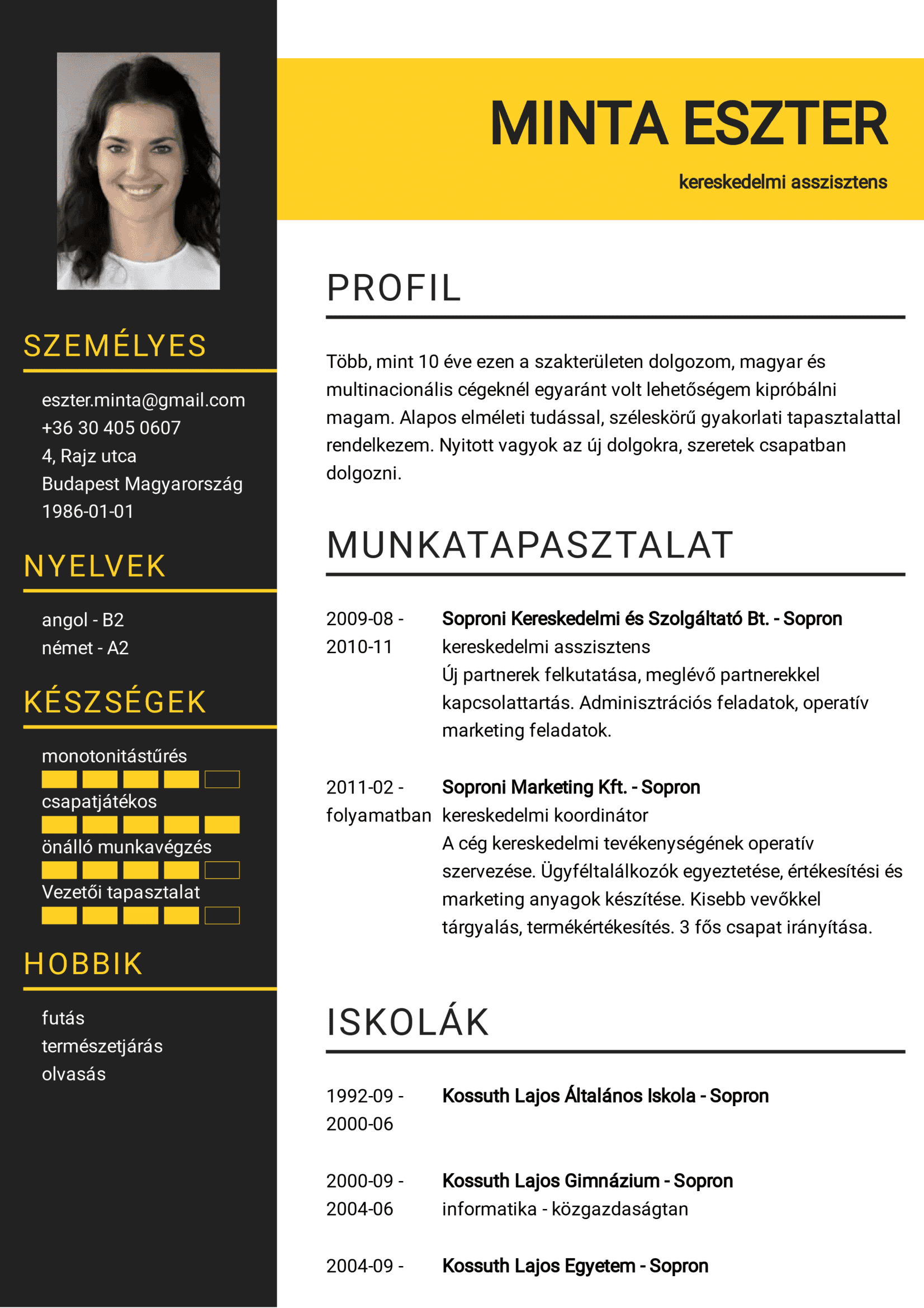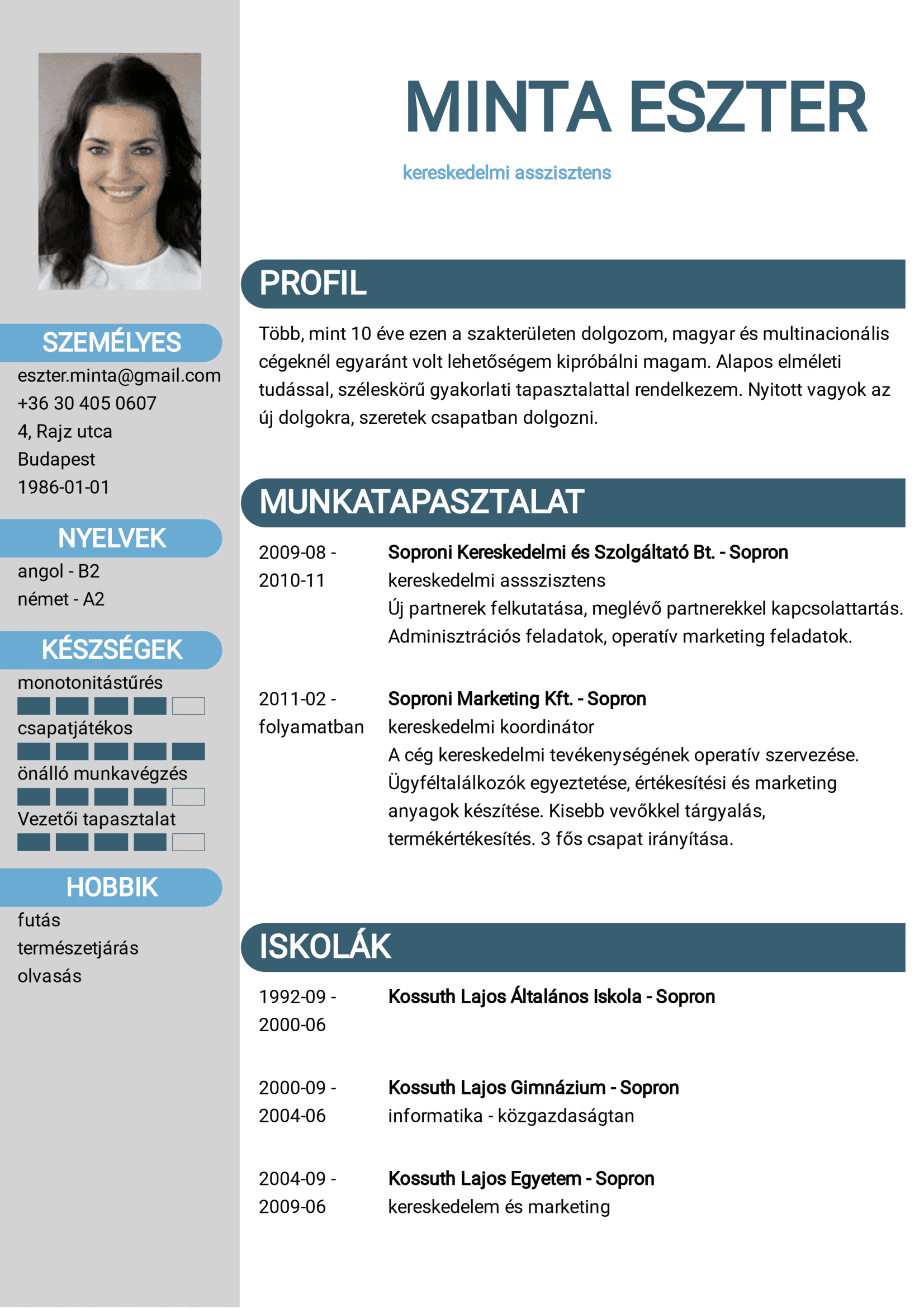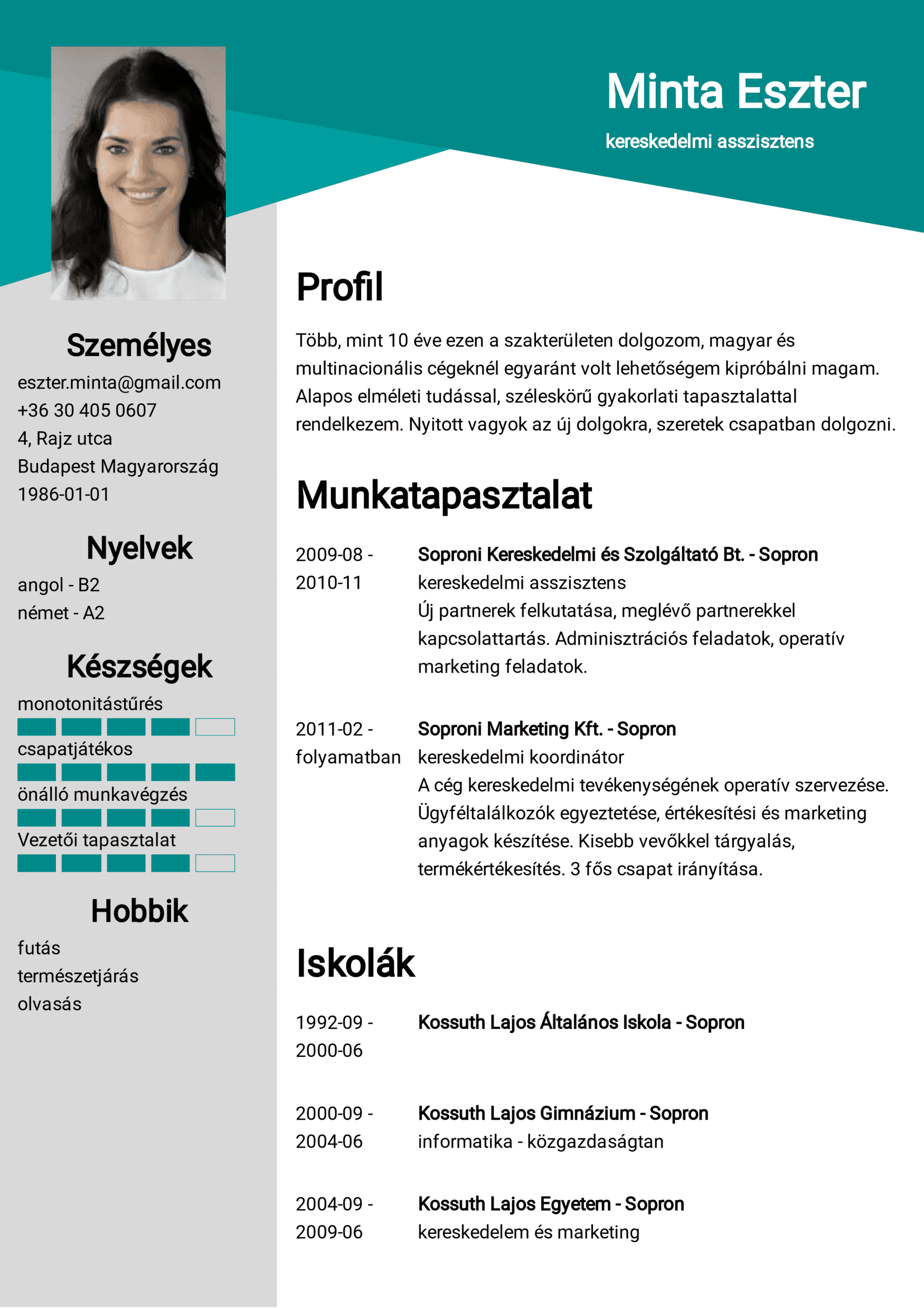

Hobbies in a Resume - What Should You Write and What Not?
When writing a resume, the main focus is usually on presenting the best professional image of yourself. However, describing your hobbies is an opportunity to showcase your interests and personality. It can evoke sympathy in those reading your resume, support your skills, and highlight your versatility. A well-chosen hobby enhances our image and the qualities listed in the rest of the resume.
How important are hobbies in a resume?
Nowadays, personality is becoming an increasingly important factor in the selection of applicants. As with skills, this also applies to hobbies: If the HR manager or future manager can learn more about the applicant than just their professional interests, it can be a significant advantage. Hobbies are not just a topic for the interview but can also complement the qualities in the rest of the resume. Since our personality, behavior in a team, and approach to problems are more complex to mold than our professional skills, highlighting these strengths through our hobbies can help us stand out from the crowd.
What do our hobbies say about us?
HR managers typically see the following information in a well-chosen hobby:
Versatility: If we can show that we have other interests besides our profession, we can demonstrate that we are versatile.
Work-life balance: Leisure activities can show that we balance our professional and private lives. It is risky for employers to have only work, as there is an increased risk of burnout.
Sports as a hobby show that we care about our health and much more. In individual sports, endurance, tolerance for monotony, concentration, goal orientation, or agility can be important. In contrast, in team sports, strategies, quick decision-making, and effective communication can be important in addition to the obvious teamwork.
Which hobbies should I not include in my resume?
Much depends on the specific position and expectations, but some things look rather bad in a resume:
Extreme sports: The first thing an employer will consider is whether they want to take the increased risk of a colleague being unable to work due to a severe injury. People who engage in these sports are often associated with adrenaline junkies who quickly get bored in their current position and seek a new challenge. However, it can also have the negative effect of associating them with extreme risk-taking, which is not advantageous in most jobs.
Passive activities include going to the cinema, watching movies, or listening to music. HR managers probably do not see these activities as particularly positive characteristics, and they will not associate you with the best team player or the most persistent applicant.
Political, religious activities: If they are irrelevant to the position, you should better not mention these divisive things in your resume, as you risk the HR manager immediately stopping reading your resume.
Violent, divisive hobbies: Even if you could convincingly argue that hunting is a valuable and necessary activity, you will not succeed if an HR manager who is a wildlife enthusiast reads your resume. Leaving these hobbies out of your resume can minimize risks and improve your chances.
Very time-consuming Hobbies: It doesn't look good if they get the impression in your resume that your hobbies prevent you from focusing on work.
Which hobbies should I include in my resume?
The first and most important advice is to choose hobbies relevant to the job. If your hobby contributes to you performing better at work, it should definitely be in your resume. If you work in a team, mentioning a team sport can be particularly useful. If you work for a multicultural company, it is advantageous to state in your resume that traveling and getting to know other cultures are among your hobbies.
If you enjoy volunteering, it will be positively received in most businesses, and empathy is advantageous in almost any environment.
For creative positions, having a hobby related to art can be particularly beneficial: You might play an instrument or paint.
If you have a hobby that seems boring at first glance, then mention a few specific examples. Reading? At least half of the applicants will write that because they think it makes them look intelligent. Conversely, the word boring is most likely to come to mind for the HR manager. If reading is a hobby, don't be discouraged; add something specific, e.g., "Reading autobiographies of European writers" or "Reading: German avant-garde literature."
Similarly, it's more interesting to write "Preparing Asian food" or "Baking homemade bread" instead of Cooking.
The most common mistakes in presenting hobbies
Don't list too many hobbies! As a career starter, when you have no opportunity to show your professional experience, it may make sense to list several hobbies. In all other cases, however, it is rather disadvantageous to list too many hobbies. Remember that hobbies are just a nuance, a complement to the image you give of yourself, they should not be the dominant part of your resume. And you already have a lot of professional experience. In that case, you can leave out the hobbies if they don't contribute anything to your resume or if you see more benefit in writing more about your previous work.
List only relevant hobbies! If you have a hobby that has nothing to do with the profession, leave it out and fill the space with other related information.
Don't lie! The paper can take a lot, but listing things outside your hobbies is not a good idea. If you get into a conversation with the subject expert during the interview, it will not only lead to embarrassing moments, but you can also be sure that you will not be selected.






